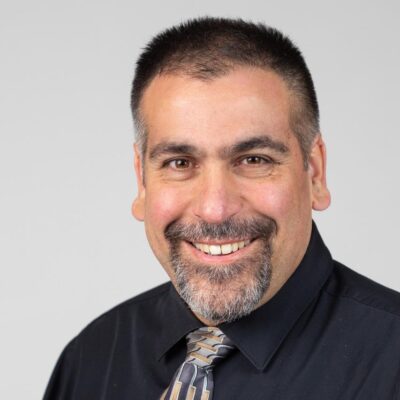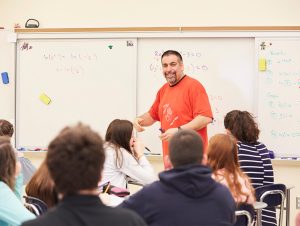AP Calculus AB Online – Jamil Siddiqui
Home »
AP Calculus AB Online – Jamil Siddiqui
This session, AP Calculus AB with Jamil Siddiqui is offered ONLINE during Week 1: June 15-18, 2026. AP Calculus AB/BC with Jamil Siddiqui is offered in ONLINE Week 2: June 22-25, 2026.
Meet your APSI Consultant for AP Calculus AB

Jamil Siddiqui believes that anyone is capable of succeeding if they are willing to work hard and give their best effort, and he encourages students with varying abilities to be successful in his class. He tells his students their thought process, their effort, and their ability to communicate their ideas are far more important than the final answers they are trying to find. Jamil firmly believes all students can be successful by working hard, improving, and not being afraid to try.
When speaking with Jamil, one can immediately sense his love for mathematics. His advice to teachers has been, “You have to love something. You love your subject, or you have to love your students.” He can often be found after school and on weekends providing extra help to students who may be struggling. These experiences encouraged 15 of his former students to be mathematics teachers.
Outside of school, Jamil has worked closely with Mass Insight Education as a mathematics lead teacher since 2012, and has served as a College Board consultant for AP Calculus since 2014. In 2019 he was selected as the Massachusetts State Teacher of the Year and The Presidential Award winner for Excellence in Mathematics and Science Teaching. In 2020 Jamil was elected to the National Teachers Hall of Fame. Jamil received his bachelor’s degree in biomedical engineering from Boston University and then earned master’s degrees in teaching and pure mathematics, also from Boston University.
APSI Course Description for AP Calculus
Calculus is the high school course that brings together all of the previous math courses our students take. They will finally get to answer the question, “Why did we learn this?”
Unfortunately this will bring a whole new set of challenges to teaching a math course. For the first time a student must remember what they learned not only in the previous chapter, but in the previous courses as well.
To this end we will be focusing on learning mathematics as a language. Understanding how mathematics works and is connected is far more important than getting an answer that matched an answer key. So much of being successful in AP Calculus comes down to understanding the words and the mathematical notation. If our students are fluent in this language they will be prepared to do well. This course will assume that the participants are new (less than 3 years) AB Calculus Teachers. It is ideal for anyone just starting out or is early in their Calculus teaching. During our time together we will focus on introducing topics so students will understand them and not just compute them. There is a thread that runs through the AP Calculus course and once we get our students to recognize it, they will start to see how all of Calculus is connected and they will stop memorizing and start understanding.We will focus on introducing the following topics and how they are interconnected: Limits Definition of the Derivative Computing Derivatives Computing Integrals Finding Area/Volume Using the Integral as an Accumulator Particle Motion Rate In/Rate OutSeparable Differential Equations A natural way to introduce each of these topics will be modeled and discussed. Major emphasis will be given to introducing and explaining how Calculus works so students will understand the material and not have to memorize. Other topics that will be covered in detail include:
-
The makeup of the AP Calculus exams The AP Calculus Exams and College Board Resources The College Board Course and Exam Description (CED) AP Classroom and the resources contained within The role of technology and appropriate calculator use on the AP Exam The scoring of the AP Exam questions and looking at what knowledge students need to demonstrate to earn full credit on the free response questions 
Each participant will have the opportunity to meet one-on-one with the instructor to go over the pacing for their particular schedule and work out a plan for the entire year. Every participant will receive resources (i.e. test/quizzes/worksheets/activities) for each of the topics that they can take and use in their classes immediately.
One of my favorite sayings is “All math is the same.” When students learn the language of mathematics and then realize that we approach these problems in the same way no matter the context they start to truly understand mathematics.
I hope to have you join us this summer.
Back to Top


